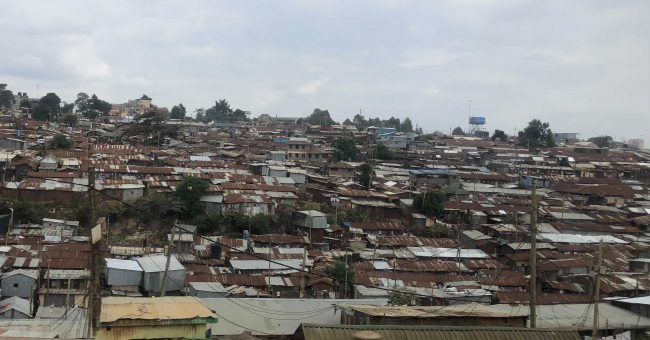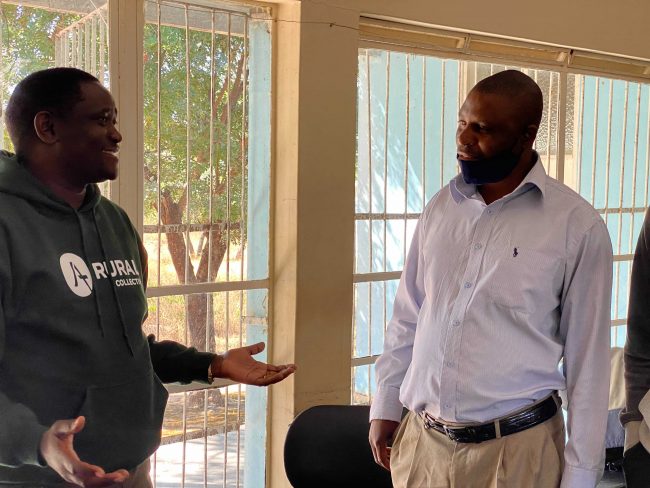Many church-planting movements today call for the rapid reproduction of churches. I’ve heard one leader of a church-planting organization use language like this: “If a new believer has a Bible and the Holy Spirit then he has all he needs to plant a church.”
Rapid church-planting movements often follow episodes of mass conversions and spontaneous baptisms. Leaders with charisma and aptitude are identified quickly, given a fast-paced and rudimentary training in evangelistic techniques, and granted the title of church planter. He assumes responsibility for a group of new believers which they call a church. In much of Southeast Asia, Latin America, and parts of Sub-Saharan Africa, church-planting movements are gathering pace and reproducing at dizzying speeds.
One of the gravest threats to church planting in hard places is the drive toward rapid and spontaneous reproduction of churches. Just as conversions are rarely spontaneous, church planting is rarely rapid. A church-planting movement not anchored by theological training, assessment, and ongoing support for indigenous leadership rarely survives the test of time.
As the Acts 29 Director of Church in Hard Places, I’ve met with hundreds of pastors and planters serving in some of the most remote, poor, and unengaged places on earth. One thing consistently clear to me is this: The churches that thrive in the hard places are those led by well-trained men who have been tested and affirmed as biblically qualified leaders.
Two Anchors of Church Planting
The church-planting movement that began in first-century Jerusalem spread rapidly throughout Judea and into Europe. But when we read the New Testament, it’s clear that this momentum was anchored by a theological precision and a robust ecclesiology.
 The highly educated Apostle Paul went through a period of training and preparation before his first missionary journey. When he went from town to town, he often stayed a while to evangelize, disciple, and train up leaders. There’s no indication that churches started spontaneously or reproduced rapidly. Rather, the general rhythm of church planting involved a period of training and assessment of new indigenous leaders. Paul warned churches not to lay hands too quickly on men or appoint new believers to leadership in the local church (1 Tim. 3:6; 5:22). Leaders should be assessed over time.
The highly educated Apostle Paul went through a period of training and preparation before his first missionary journey. When he went from town to town, he often stayed a while to evangelize, disciple, and train up leaders. There’s no indication that churches started spontaneously or reproduced rapidly. Rather, the general rhythm of church planting involved a period of training and assessment of new indigenous leaders. Paul warned churches not to lay hands too quickly on men or appoint new believers to leadership in the local church (1 Tim. 3:6; 5:22). Leaders should be assessed over time.
Paul’s church-planting strategy also had a high view of ecclesiology. He made sure churches were preaching the truth, exposing heresies, appointing qualified leaders, overseeing members, caring for widows and orphans, and administering the ordinances appropriately. He did the hard work of establishing gospel-centered leaders in gospel-centered churches.
Two Threats to Church Planting
I believe there are two great threats to gospel work in the world’s poor and unengaged communities, and I’m fairly confident these two threats are connected. The first is the threat of the prosperity gospel—a works-based, graceless, crossless, and man-centered preaching. Theological wolves are preying on the poor, and the bait with which they seduce is a gospel that promises health and wealth rather than grace and Christ.
The churches that thrive in the hard places are those led by well-trained men who have been tested and affirmed as biblically qualified leaders. Click To TweetSecond is the danger of rapid multiplication of poorly trained church leaders and poorly defined churches resulting in confusion about what the church is and what a Christian should be. In the New Testament, a church is a publicly distinguishable gathering of believers who have covenanted together to worship Christ as a display of his glory to the nations. It’s a rightly ordered assembly that correctly observes the ordinances of baptism and the Lord’s Supper as visible markers of the redeemed. The establishment of such a community of believers cannot be done quickly.
While I want to rejoice at the apparent movement of God—and I am in no doubt that the Holy Spirit can and is seeing conversions and church planting happen at pace—I want to heed Paul’s words of caution. I’ve met many so-called “church planters” preaching a gospel that is false. I’ve seen many so-called “churches” that look far from orderly or gospel-centered.
Our task is urgent, but an urgent task completed carelessly rarely produces good results. We must not pursue innovation at the expense of theological precision. Let us pursue church planting with the same sense of urgency and carefulness as the early church.
Urgency and Precision in Church Planting
We’ve all seen the glossy missionary agency websites and well-edited video clips. We’ve read the tweets and been amazed by the Facebook posts celebrating mass conversions, spontaneous baptisms, and rapid growth in church planting. Might I suggest we look beyond the numbers and ask some probing questions of the agencies and ministries we’re partnering with and funding? How do they define a church? What do they consider to be a genuine conversion? How are they assessing the character, competencies, and biblical conviction of leaders? How are they training this rapidly growing number of church leaders? How are they tracking the health (theological and otherwise) of new churches?
Our task is urgent but an urgent task completed carelessly rarely produces good results. Click To TweetI’m pleased that we in Acts 29 are moving forward with urgency and precision. One of the core values of our global community of churches is the need to assess church planters and provide ongoing training and support to them. By doing so, we believe we will see healthy churches planted by strong and faithful leaders.
This is not a rapid process. It takes time to plant a church. It always has. That is as true in Southeast Asia as it is in Southeast Texas. This is why the Church in Hard Places apprenticeship offers a two-year non-residential training followed by an assessment process for indigenous church planters and pastors in some of the poorest, most remote, and least engaged places on earth.
We will continue to dig deep and invest for the long term as we seek to plant healthy churches. I pray the result will indeed be the reproduction of many churches as we make disciples who seek to know Jesus and make him known.











